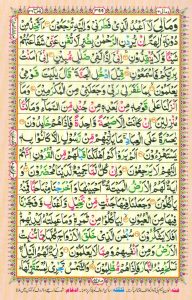99 Names Of Allah With Meaning in English Urdu And Benefits
99 Names Of Allah With Meaning And Benefits As-salamu alaykum wa rahmatullahi wa barakatuh (May peace, mercy, and blessings of Allah be upon you). The 99 Names of Allah, known as Al-Asma’ ul-Husna (‘sm llh lHsn~), are special names that describe the qualities of our Creator. Each name helps us understand










